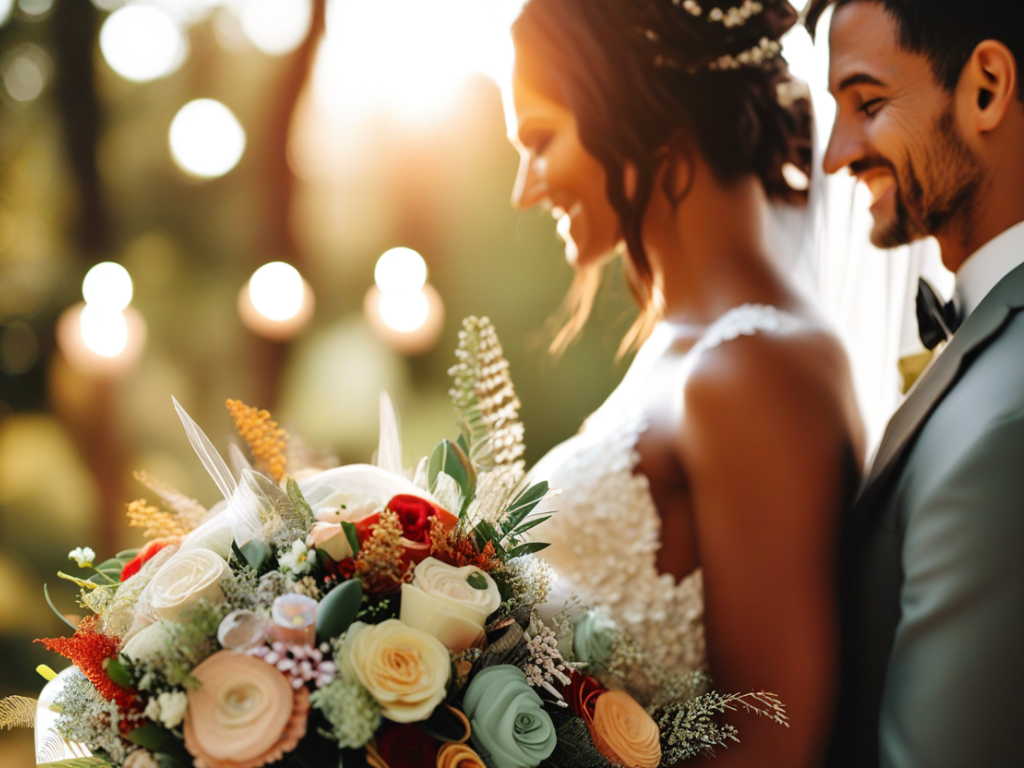Planning a wedding is a beautiful journey filled with dreams, expectations, and a whole lot of details to sort out! But when you’re bringing together two cultures, the experience becomes all the more special and complex. It’s not just about blending traditions; it’s also about understanding the financial implications that come with it. If you’re looking to navigate the budget planning process for a cross-cultural wedding, you’re in the right place. Let’s dive in!
In this article you will find:
- A General Overview of Wedding Costs
- Understanding The Additional Costs of a Cross-Cultural Wedding
- Investing In The Right Aspects
- Budgeting Tips for your Cross-Cultural Wedding
- Embrace the Journey
A General Overview of Wedding Costs
Before we get into the specific intricacies of cross-cultural weddings, it’s essential to have a good grasp of general wedding costs. Across the board, weddings can vary wildly in pricing, depending on factors like the number of guests, the venue, the season, and so much more. Research shows that in the US, the average cost of a wedding is around $22,500, however, keep in mind that this figure can fluctuate depending on many factors.
Our primary goal here is to provide some insights. That’s why it’s beneficial to break down average wedding expenses. Around 50% of your budget will go to your venue, catering, and rental costs. The remainder gets split across attire, flowers, music, photography, and gifts. Be sure to factor these baseline figures into your budget when determining your specific cross-cultural wedding costs.
Understanding The Additional Costs of a Cross-Cultural Wedding
Mixed-culture weddings provide an exciting opportunity to blend traditions and customs. However, they can sometimes introduce additional costs. For example, some cultures mandate specific rituals, costumes, or caterers, which could exceed your initial budget if you’re not prepared.
Consider, for instance, Indian weddings. They are commonly multi-day affairs that incorporate various ceremonies – each requiring unique attire, catering, and décor. As another example, traditional Chinese weddings often include a tea ceremony and a feast known as a ‘reception dinner’ – both traditions come with their own set of expenses. Have an open conversation with your families and understand the cultural necessities to help you gauge the potential additional costs.
Investing In The Right Aspects
The beauty of a cross-cultural wedding lies in its authenticity and richness. Indeed, it’s an opportunity to celebrate your unique blend of cultures, and your spending should reflect that. Make sure you’re investing in the elements that truly embody your cultures and personal tastes.

For instance, food is often an essential part of cultural expression. Instead of a traditional three-course meal, perhaps consider a buffet option showcasing delicacies from both your cultures. Similarly, rather than a standard white wedding dress, you could consider incorporating fabrics or styles that represent your cultural outfit. Remember, your wedding is a reflection of your story. So, it’s worth investing in aspects that honor and celebrate that.
Budgeting Tips for your Cross-Cultural Wedding
Let’s then dive into some practical tips to create a budget for your special day. The first pointer would be to prioritize. Identifying what elements are crucial for you and putting them at the top of your list helps in allocating your money effectively.
Your guest list plays a significant role in your budget. While it’s lovely to celebrate with everyone you know, a more intimate wedding can save you considerable amounts in terms of venue costs, food, and stationery.
Finally, don’t underestimate the power of DIY. By engaging your creative side, you can infuse more personality into your wedding, while also saving on décor and invitation costs.
Planning a cross-cultural wedding can be a bit challenging, but remember that it’s an opportunity to create an event that’s incredibly unique and personal. With careful planning and budgeting, you can pull off a celebration that beautifully blends traditions and leaves your guests with an experience they’ll treasure forever.
Embrace the Journey
Every wedding planning journey will have its bumps and surprises, and there’s no exception for a cross-cultural affair. What’s most important is to keep communication lines open, be understanding and considerate of each other’s cultures, and ultimately have fun during the process. After all, this is a celebration of the love you both share, and that’s the most beautiful thing to invest in!

